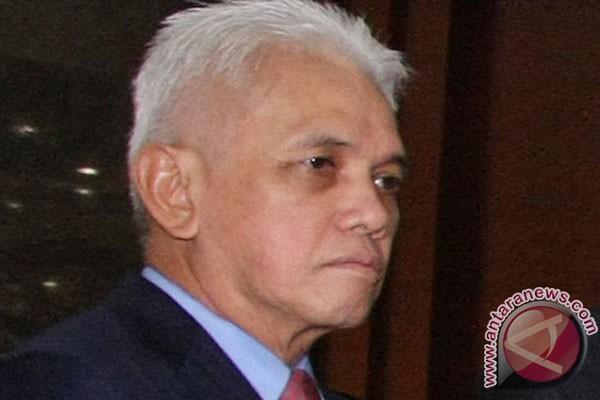Indonesia eases foreign investment rules to boost economy
Bareksa • 24 Dec 2013

Menteri Koordinator bidang Perekonomian Hatta Rajasa (ANTARA Foto/Reno Esnir)
Indonesia fears further foreign outflows due to political uncertainty ahead of next year's elections
Reuters - Indonesia announced on Tuesday it will allow increased levels of foreign investment in the country's power plants, advertising, and pharmaceutical industries as part of government efforts to boost the slowing economy.
Policymakers are scrambling to tempt back jaded investors who have fled Southeast Asia's largest economy due to the country's sizable current account deficit, which has helped make the rupiah skid more than 20 percent against the dollar this year.
Indonesia fears further foreign outflows due to political uncertainty ahead of next year's elections and the reduction of U.S. monetary stimulus, which long fuelled demand for risky assets in emerging markets.
"The commitment is to maintain Indonesia's economic growth and anticipating a slowdown in the global economy by encouraging investment, particularly in domestic and foreign investment," Chief Economic Minister Hatta Rajasa told reporters.
After months of delays, ministers amended Indonesia's "negative investment list" of sectors in which foreign investors are either barred or restricted. The list, which has existed for decades, limits foreign involvement in areas deemed sensitive.
No date was given on when the changes will become effective since President Susilo Bambang Yudhoyono must still formally sign the decree.
"This (list) will boost the investment climate during a political year, providing more legal certainty from a better negative investment list," said Sofjan Wanandi, head of the Employers' Association of Indonesia (APINDO).
Under the new policy, the government increased the maximum foreign investment in pharmaceutical companies to 85 percent from 75 percent, and in advertising agencies to 51 percent from 49 percent.
MORE COMPETITION?
That means more competition could be in store for Indonesian pharmaceutical firms Kimia Farma, Indofarma and Kalbe Farma, as well as for advertising agency Fortune Indonesia.
Indonesia also allowed foreign investment of up to 100 percent from 95 percent for power plant projects carried out as a public-private partnership. Under the partnership terms, a foreign investor now can own an entire power-plant during a concession period, after which some equity transfers to the government.
At the last minute, the government dropped its earlier proposal to let foreign investors to fully operate airports and ports, dealing a blow to India's GVK Power & Infrastructure , South Korea's Incheon International Airport Corp and others looking for a bigger presence in Indonesia.
Economists said the changes were a good first step to attracting investment, but more was needed.
"The main problem is not the variation in investment types, but how comfortable for them to invest in Indonesia," said Lana Soelistianingsih, chief economist at Jakarta-based fund manager PT Samuel Aset Manajemen.
The World Bank and International Monetary Fund earlier this month warned the world's fourth most populous country to implement more profound economic reforms if it has any hope of returning to stronger growth.